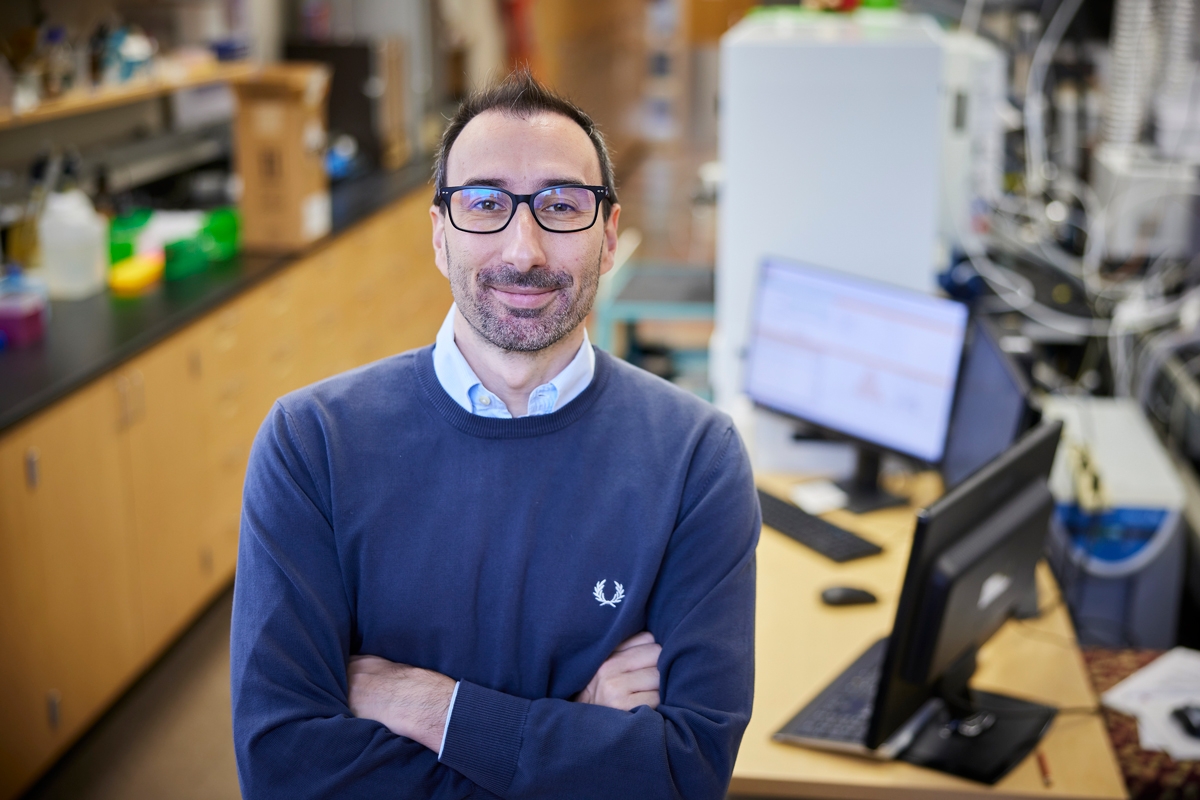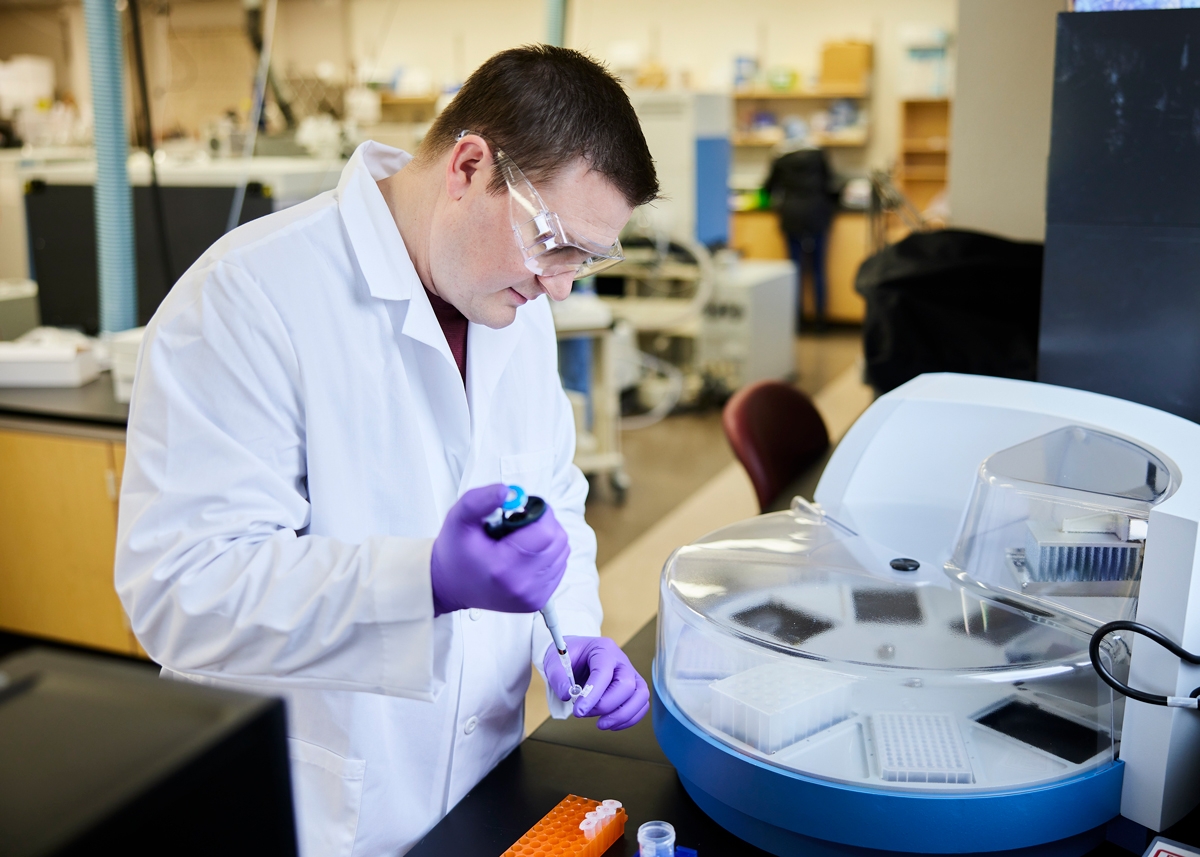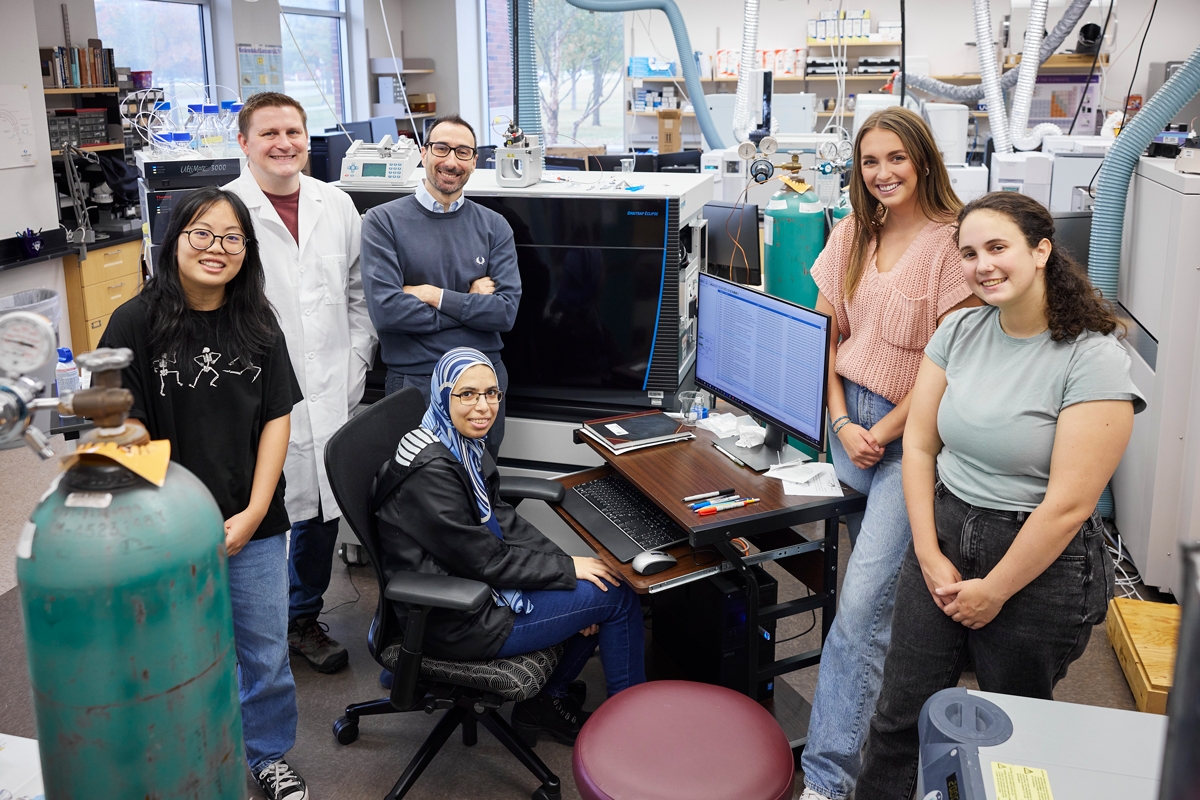Just like seeing the forest through the trees, studying a whole, intact molecule has incredible scientific benefit but is difficult to do without the very latest technology.
Luca Fornelli, an assistant professor of biology in the Dodge Family College of Arts and Sciences at the University of Oklahoma, has received a five-year Maximizing Investigators' Research Award, or MIRA, from the National Institutes of Health to increase the efficiency of National Institute of General Medical Sciences funding by providing researchers “with greater stability and flexibility, thereby enhancing scientific productivity and the chances for important breakthroughs.”
Fornelli studies proteomics, the science of studying the entire ensemble of proteins inside certain cells or tissues. Proteins are large, complex molecules that play many critical roles in the body. They do most of their work in cells and are required for the structure, function and regulation of the body's tissues and organs. However, Fornelli said, “A protein doesn't exist per se.” Instead, there are many different forms of proteins called proteoforms.
“The standard way proteomics is performed requires that a protein be deconstructed – chopped into pieces so that those smaller components can be studied to try to infer information about the original molecule,” Fornelli said.
This method, known as “bottom-up” or “shotgun” proteomics, is used because molecules are often quite large and difficult to study as a whole.
Fornelli’s lab specializes in an approach called “top-down proteomics” which looks at the protein forms as they originally are. This is important because it helps scientists understand a molecule’s different modifications that may alter the activity of protein forms in tissues or cells. An example is the COVID-19 virus' spike protein.




